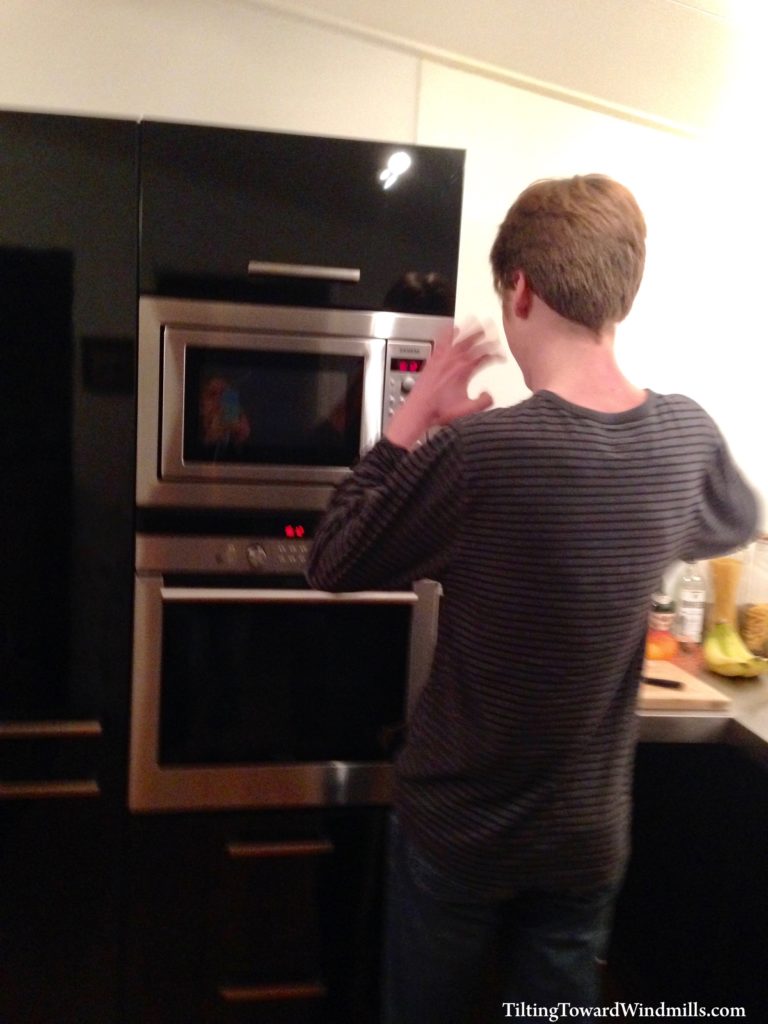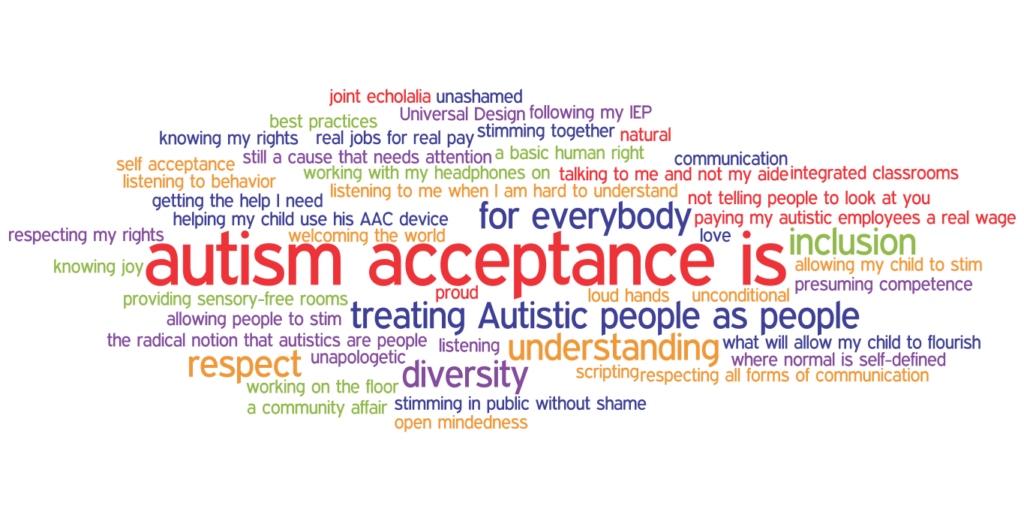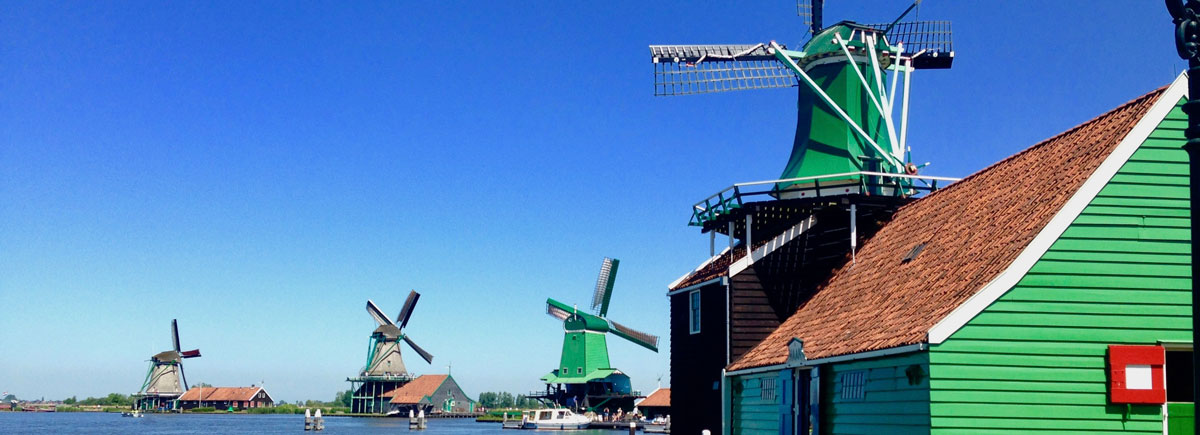When we arrived in the Netherlands almost 3 years ago, I was immediately taken aback when people spoke directly to my son, B. when we were out in public. Almost no one assumed that just because he had a disability he couldn’t speak for himself. There was no detectable nervousness or hesitation to deal directly with him. He was regarded as a person, and an equal. I had to quickly learn not to speak for him.
The other thing I found surprising was that people we met were very open about discussing B’s disability. They were curious, asking questions about B., his condition, how he was coping with the change and learning the Dutch language. They often offered suggestions for government programs and non-profits that might offer some assistance. Not only was there a lack of resentment that we had moved into their country and might be in need of costly services, but they were downright adamant that I should seek out any needed services. “You’re entitled to that help as taxpayers in this country,” they’d say.
The role of the family physician (huisarts) in the Netherlands is an important one. The huisarts is the conduit for any necessary services due to any medical, psychological or social issues facing the patient. Just a few days after our arrival in the Netherlands, I had my first appointment with my family physician, which is a session to talk with and get to know one another. She had already met B. at his appointment the day before when we’d discussed his condition and needs. At my appointment, the topic quickly turned to my role as my son’s caregiver.
“How are you doing with your son?” she asked.
“Fine. ” I replied.
“I want to know how are you really doing” she insisted. “How are you coping? What are you doing to get support for yourself?”
Tears filled my eyes. ” I can’t ever remember being asked that question.”
“Do you have help with him?” she asked. “Do you have any respite?”
“When we lived in the US, I got a break twice a month on weekends when he was with his father.” I replied. “There was nothing else in place to help us there.” “I don’t have any respite here.”
“Twice a month doesn’t seem like nearly enough, and it’s not acceptable that you have no respite here.” she replied as she began explaining the Dutch system and possible agencies that could offer assistance.
“You are entitled to a life,” she stated flatly.
At get-togethers with friends in the Netherlands, I often found an adult taking the time to speak to B., joining him in whatever activity he was engaged in. Children would include him in their activities to the extent he wanted to participate. There was no fear of him or his disability.
There are two types of challenges when someone in your life has a serious disability. The actual, tangible challenges that the person faces, and peoples’ reactions to those challenges.
B’s tangible challenges often seemed daunting, but I always knew that by working on them one by one, we’d eventually reach some resolution or solution. It was like climbing a mountain; I could see the summit and just had to reach the top.
The second type of challenge, people’s reactions to B., has proven equally if not more difficult for me than B’s tangible challenges.
Many people with autism stim. B. stims with his hands, his voice, and sometimes his entire body. His stims increase when he is excited, which is very often. He walks quickly and in a stiff way, often high up on his toes, bouncing slightly and leaning forward. We feel —as do many in the autism community— that B. needs to stim to calm himself, and we don’t discourage it unless it is absolutely necessary. It is part of who he is. B. was often made fun of in the US for stimming; he was moved away from, stared at, laughed at or simply completely ignored. People seemed to misunderstand his actions and were often afraid of him.

Hundreds of times before our move to the Netherlands, B. had been singled out, made fun of or excluded due to his differences. Every outing would likely result in one or more incidents, usually right in his presence and within his ability to hear. Each time my heart broke for him. My faith in humanity dissolved like a child’s belief in Santa Claus.
As an example, when my daughter was a teenager in Portland she had agreed to look after B. for me but wanted to go with a friend to a local swimming pool. I finally relented and agreed to let them go and take B. They had a very difficult interaction with an adult at the pool, culminating in the adult yelling at K. that she “shouldn’t bring someone like him out in public.” Both girls were in tears as they related the encounter. “Now you know why we have to keep such a close eye on B.,” I said. “It is more to protect him from other people than for his own safety.” It’s a lesson that no teenager should be forced to learn.
Over the past 3 years, my need to constantly be on guard to protect him from others has slowly melted away. I can count the number of these types of incidents we’ve had on one hand.
Peter Mayer is a midwestern singer-songwriter who wrote one of my favorite songs, Japanese Bowl. Kintsugi, also known as Kintsukuroi, is the Japanese art of repairing broken pottery with lacquer dusted or mixed with powdered gold.
The humanity of this wonderful country has filled my cracks with gold.


Your son’s life is so true, some people in the u.s. look only at the outside person and not pay attention to what is inside. You are such a loving mom?
Thank you for your kind words. It has always been a struggle but so worth it.
Inspiring… so glad you have found a good place where your son can thrive…. C. Means
Thank you, Cindy. We feel so fortunate to be here.
This was beautiful to read. Thank you for exposing your soul, and I’m glad you now feel fulfilled, or at least less broken!
Thank you, Tiago.